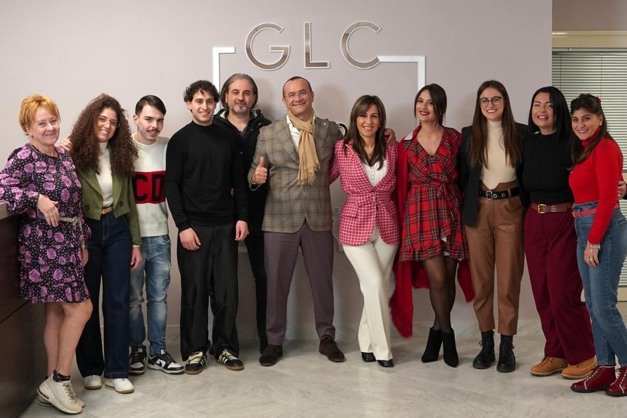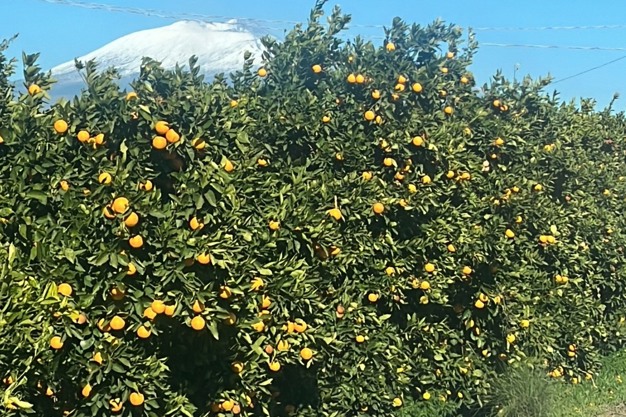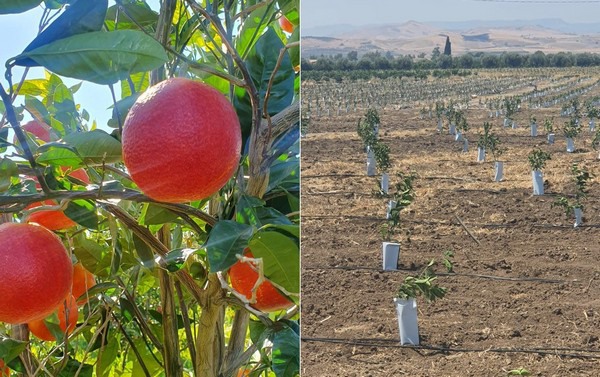The end of the 2024 import season marked a turning point for the European orange market, which was flooded by imports, particularly from South Africa.
"One of the key factors behind this was a malfunction in the logistics system, concerning shipments from the port of Durban in particular, combined with speculation by exporters on the price of South African oranges. Taking advantage of prices already high at origin, exporters loaded shipments too late, causing an increase in transit time especially from the ports of Durban and Cape Town," reports Giuseppe Galluccio, founder and commercial manager of Gruppo La California (GLC), which operates within the Agro-Food Centre of Naples-CAAN and in Capua.

According to Galluccio, an early campaign in the northern hemisphere exacerbated the situation further. Driven by the demand for domestic produce, northern producers started to put de-greened oranges on the market, leaving the imported product behind. This dynamic destabilised trade, leading big retail chains to favouring domestic produce and causing prices of imported citrus fruit to drop.
Unlike oranges, imported clementines, and lemons ended 2024 on a positive note, as they were not subjected to the same pressure. However, last year ended with low prices for oranges, barely covering production costs. "This scenario highlights the importance of a balanced management between domestic and imported produce, as well as the need for a more efficient logistics system. Only through a more harmonised approach will it be possible to ensure a sustainable and profitable citrus market for all actors involved," Galluccio explains.
Orange varieties such as Navelina, Navel, and New Hall - mainstays of European production - suffered due to a market overloaded with imported fruit that created a situation diametrically opposed to last year. "The cultivars harvested so far found a market that was full of imported fruit," explains the expert.
The economic context does not play in the sector's favour. Europe, which is dealing with a difficult economy, is seeing a drop in purchasing power among consumers. Contrary to what one might think, falling prices have not favoured an increase in orange consumption. "Low prices no longer favour consumption," says Galluccio, highlighting a change in consumer behaviour that seems to have become consolidated post-Covid. "The tendency to spend less and the loss of the culture of consuming fruit at home have contributed to a general decline in demand. In addition, there is a shift in eating habits, with an increasing preference for eating out. This change has a direct impact on the consumption of fruit and vegetables, including oranges, which no longer find the same place in people's everyday diet."
 Production in Sicily by Gruppo La California
Production in Sicily by Gruppo La California
"Egypt, the South Africa of the Northern Hemisphere"
Gruppo La California is taking significant steps to consolidate and expand its presence on the citrus fruit market and is targeting the Egyptian market. "At a time when Europe is confronted with the challenges of high production costs and increasingly fierce competition, we see Egypt as a unique opportunity to strengthen our position both on the old continent and on a global level. In addition, our focus on cultivation in Sicily is growing more and more: we have increased our production by associating with other producers and creating a new base. This growth does not just involve figures but is deeply rooted in the values that Gruppo La California holds in high regard. Family culture is at the core, a principle that guides our company towards a future that sees collaboration, mutual support, and a shared vision as the fundamental pillars."
"The decision to focus on Egypt stems from a precise awareness of the difficulties encountered in exporting Italian and Spanish products, due to the high production costs that make competition in foreign markets particularly tough. We see the Egyptian market as a point from which to export to both Europe and worldwide. I believe that Egypt is the South Africa of the northern hemisphere," says Galluccio, highlighting how the country can represent for the northern hemisphere what South Africa represents for the southern hemisphere, i.e. a strategic hub for global citrus export.
When asked about possible competition from Turkey, the founder and sales manager of Gruppo California expresses a clear point of view. "Although Turkey is a valued trading partner for other products such as pomegranates, the situation is different for citrus fruit. The Turks are quite expensive and they are also complex, as a people," says Galluccio, adding that he does not really believe that Turkey can be a serious competitor when it comes to citrus fruit. "The opening of the Turkish market to Russia and Eastern countries is seen as sufficient for their production volumes, which do not seem to be able to meet the demand of the international market."

Gruppo La California oranges and growing trees
The expert is cautiously optimistic about the future, as he hopes that the flooding of the market by Egypt, which severely affected the sector last year, will not be repeated. "Projections for Spain and Italy have not predicted large harvests, which would have provided an opportunity to rebalance the market in terms of quantities sold and prices. My view is that, if what happened with Egypt last year does not happen again, production prices and consumption of oranges will be fairly balanced. In this complex scenario, the future of the orange market remains uncertain but, with a careful and strategic management of production and imports, a sustainable balance for producers and consumers can still be found."
"In 2025, will try to further develop the family culture, i.e. the approach of helping each other which, by emphasising the human dimension and shared values, is what makes us stand out. The presence of young people within the company injects additional energy and optimism, ensuring that relations with the outside world are always broader, constructive, and strong."
Participation in Fruit Logistica 2025
"Participating in international events such as Fruit Logistica is not only an opportunity to showcase the company's progress and performance, but also a time to strengthen and forge new ties with partners around the world. The enthusiasm that permeates our group is comparable to the pure and genuine joy of a child, a feeling that turns challenges into opportunities and daily work into a shared mission," Galluccio concludes.
Gruppo La California will attend Fruit Logistica (Berlin, 5-7 February 2025), in Hall 2.2, Stand B-10.
For more information:
www.gruppolacalifornia.com









